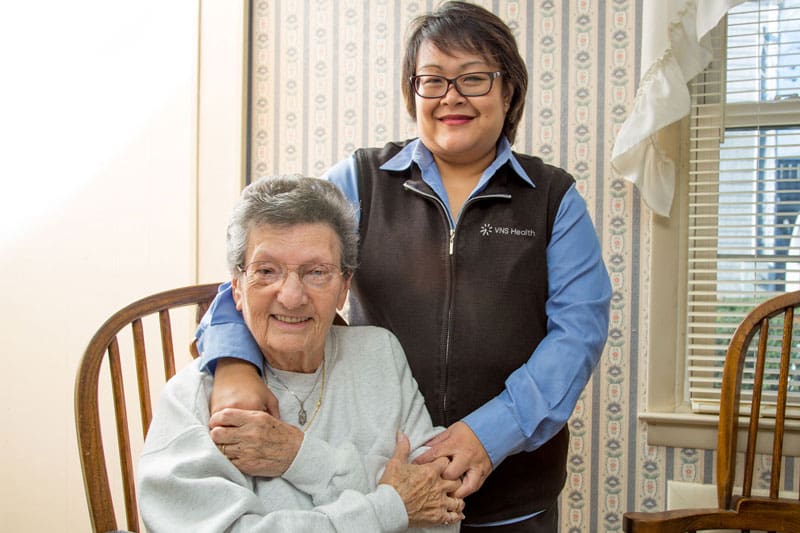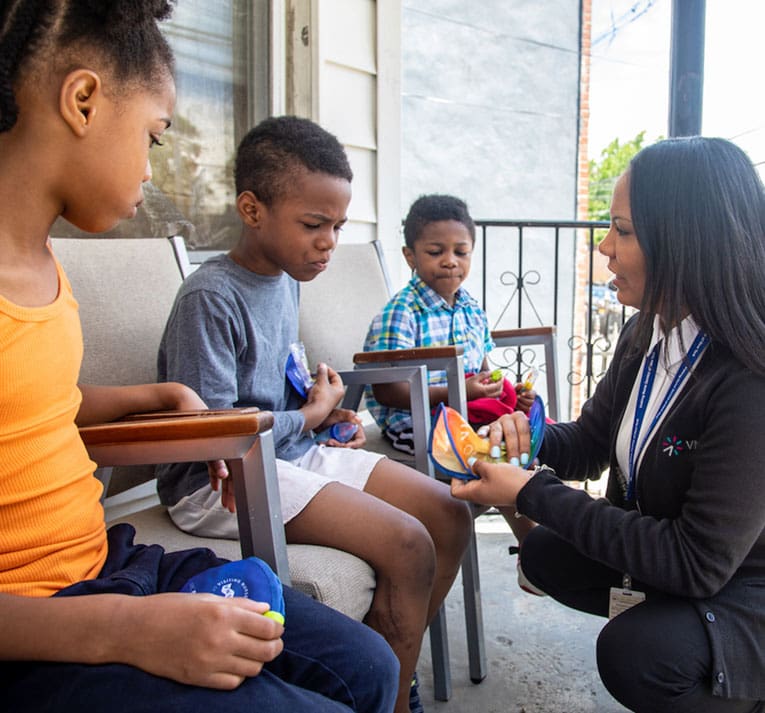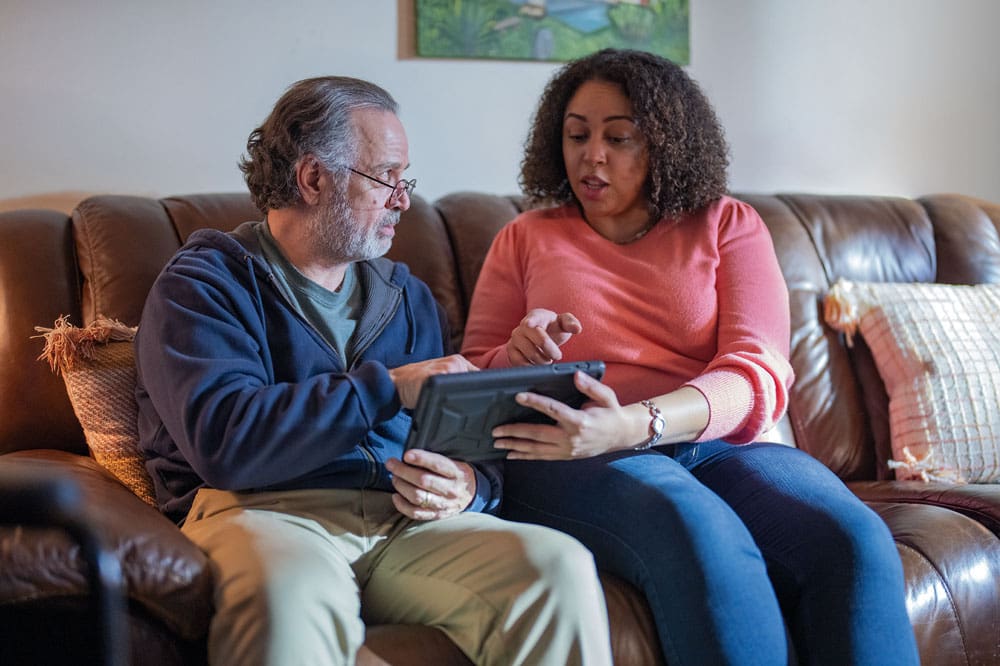Behavioral Health
VNS Health provides compassionate behavioral health services to individuals of all ages throughout New York City. Our programs range from crisis intervention to long-term treatment and care management for adults, children, and families with complex mental health and substance use conditions.
So, how can we help?

Need help now? If you or a loved one is experiencing a mental health crisis, call the Suicide and Crisis Lifeline at 988. For medical or life-threatening emergencies, call 911.

Who We Help
The behavioral health services and supports we provide span many conditions and needs that affect individuals of all ages, in all neighborhoods. That’s why we meet people where they are, with tailored support and without judgment, and regardless of their ability to pay.
Our teams work with:
• Individuals with mental health conditions, from children to older adults
• LGBTQ+ and BIPOC teens and young adults at risk of suicide
• Individuals and families in crisis
• People with substance use conditions
• Unhoused individuals and families
• Individuals with complex or chronic diseases
The goal: To provide all New Yorkers the support and resources they need to thrive at home and in their communities.
Behavioral Health Services
Our Behavioral Health services include short- and long-term care, delivered where people need us most — in the home and community. We also provide individualized care coordination that looks at the whole person to ensure their medical, behavioral, and health-related social needs are seamlessly supported.
-
Crisis Intervention & Outreach
Immediate assessment and linkage to longer-term support, such as:
- Crisis response within 2 hours
- In-home counseling for older adults with mental health conditions
- Outreach to LGBTQ+ and BIPOC teens and young adults at risk of suicide
-
Treatment Programs
Outpatient support, such as:
- Ongoing mental health treatment for children, adolescents, and adults
- Help with medications after a psychiatric hospitalization
- Family and group counseling
-
Care Management
Intensive, community-based outpatient support for up to a year, such as:
- Comprehensive needs assessment
- Help with proactively managing chronic conditions
- Coordinating and integrating care with multiple providers
- Connection to critical social supports
-
Post-Acute Transitional Care
Intensive support that combines elements of treatment and care management services, such as:
- Short-term “bridge” to community services after hospital discharge
- Frequent contact and care coordination to prevent inpatient and ED use
- Intensive in-home counseling, care management, and crisis intervention


Related Services
-
Alzheimer’s & Dementia Care
Expert care for people with Alzheimer’s or another type of dementia, and support for their caregivers.
-
Emotional & Grief Support for Hospice Care
As a part of hospice care, guidance and support for patients and their loved ones.
-
Behavioral Health Support & Home Care
Care and support for people with illnesses such as dementia, depression, and anxiety.